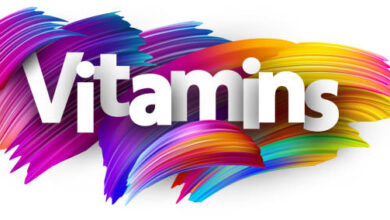
Vitamins are vital nutrients that our body desires to function properly.
- They play a critical role in various physical functions, from increasing our immune system to secondary bone health. In this blog post, we will discover the benefits of different vitamins and which ones are good for precise aspects of our health.
The Powerhouse of Energy: Vitamin B Complex
Including eight different B vitamins, the B complex is active in transforming food into fuel for the body.
- Thereby helping as a cornerstone for a robust metabolism and a professionally functioning nervous system. Each fellow of this complex achieves a unique role, with B12 being particularly vital for the mixture of red blood cells and the care of neurological health. This synergy among the B safeguards that energy levels are enhanced and mental clarity is reinforced.
- Foods plentiful in the Vitamin B complex, such as entire grains, nuts, seeds, and verdant green vegetables, deliver a natural and effective way to fuel the body’s vigor needs. Moreover, these nutrients aid in the deterrence of infections by boosting the immune system, further showcasing their crucial role in maintaining health and energy.
- Mainly noteworthy is how the B complex supports reasoning function and brain health. For example, vitamins B6, B9 (folate), and B12 have been linked to a summary risk of brain illnesses and improved mood directive, highlighting their meaning beyond mere energy production. Joining a diet rich in these vitamins confirms not just physical energy but also a strong and sharp mind, free from the cloud of exhaustion and stress.
The Sunshine Vitamin: Vitamin D and Bone Health
Named the “sunshine vitamin” due to its exclusive synthesis in the skin with sunshine exposure, Vitamin D stands as a pivotal nutrient for bone health and asset.
- It enables the absorption of calcium, an important mineral for the building and maintenance of sturdy bones. The association between D and bone health is vital; without enough D, bones can develop thin, brittle, or slanted, leading to conditions such as osteoporosis or rickets in children.
- Outside bone health, Vitamin D applies influence on muscle purpose and the immune system, hinting at its wider implications for overall well-being. Though, obtaining adequate D exclusively from natural sunlight can be stimulating, especially in colder climates or for persons with limited sun contact. This makes nutritional sources and possibly supplementation crucial components in safeguarding adequate D levels.
- To bolster D intake, including fatty fish like salmon and trout, as well as encouraged goods and egg yolks into the diet can be helpful. For those who may fight to get enough D from sunlight and food alone, additions offer a viable another, though it’s sensible to seek professional leadership to tailor intake suitably to individual health needs and evade the risk of Vitamin D toxicity.
The Antioxidant Supreme: Vitamin C and Immune Function
Vitamin C stands as a difficult antioxidant, playing a key role in defensive our cells against the perils of oxidative stress caused by free extremists.
- This nutrient is supreme not just in cellular protection but also in the body’s aptitude to repair and grow matters. Its rank is underscored in procedures such as wound curative and in upholding the health and bounciness of our skin. Central to Vitamin C’s welfares is its capacity to bolster the resistant system, ornamental the body’s capability to ward off communicable agents.
- Rich dietary foundations of C comprise a plethora of fruits and taters, with citrus fruits like oranges and lemons, strawberries, bell peppers, and kiwis being mainly potent. Highlighting these foods in one’s diet can help uphold optimum levels of C, which, in turn, ropes a myriad of bodily purposes beyond resistant defense.
- Additional importance its adaptability, C assists in the fascination of iron from plant-based foods, educating blood iron levels and fighting anemia. The interconnectedness of C’s roles in ornamental immune function, indorsing skin health, and helping in iron fascination demonstrates its indispensable nature in our diet. To achieve the full spectrum of benefits, a reliable intake through varied dietary sources is optional, fostering not only resistant pliability but also causal to overall health and vitality.
The Vision Protector: Vitamin A and Eye Health
Vitamin A, a key performer in eye health, protections against night sightlessness and preserves the ability to see in dim illumination.
- This essential nutrient is also essential in subsidiary a robust immune system and helping in the cellular growth essential for overall health. Its significance extends to the external of the eye, the cornea, where it plays a dangerous role in averting dryness and plummeting the risk of eye infections.
- Dietary causes rich in Vitamin A, such as leafy greens, carrots, sweet potatoes, and liver, offer a trail to bolstering eye health obviously. By ranking these foods, individuals can improve their vision health and strengthen their immune answer. Beyond its welfares for sight, A contributes to the honesty and function of skin and slimy membranes, making it an ally in guarding against outside pathogens.
- In the realm of eye maintenance, ensuring passable intake of A is particularly crucial for those at danger of age-related macular deterioration (AMD), a leading cause of blindness among older adults. While Vitamin A cannot cure AMD, maintaining adequate levels can help alleviate risk factors and provision overall eye health. Attractive in a diet diverse in A foundations is a active measure to maintain clarity of vision and the health of the eyes.

The Guardian of Your Heart: Vitamin E and Cardiovascular Health
Vitamin E, celebrated for its antioxidative possessions, plays an important role in cardiovascular health by defensive the heart and blood vessels from oxidative injury.
- This essential nutrient aids in the deterrence of chronic diseases, chiefly those related to the heart and cardiovascular system. By combating free extremists, E helps maintain the integrity of cell skins throughout the body, counting those of the heart and blood containers. This action is crucial for stopping the oxidation of cholesterol, a key influence in the growth of atherosclerosis, a foremost cause of heart attacks and blows.
- In addition to its defensive effects against oxidative pressure, Vitamin E ropes the overall health of the cardiovascular scheme by helping to reduce irritation, a known risk issue for heart disease. Its role in resistant function further donates to its protective effects against cardiovascular circumstances.
- For best heart health, incorporating E-rich foods like almonds, hazelnuts, sunflower seeds, and spinach into the diet can be helpful. While n E additions are available, obtaining this nutrient from natural food sources is favored to ensure a stable intake of antioxidants for heart health defense.
The Bone Builder: Vitamin K and Its Role in Blood Clotting
Vitamin K attitudes out for its critical functions in the kingdom of blood coagulation and emaciated health.
- This nutrient is a key player in the procedure of blood clotting, a usual and necessary reply to injury that prevents extreme bleeding. Without passable K, the body’s ability to form blood clots is reduced, which can lead to bruising and hemorrhage issues. Beyond its well-known role in clotting, K is equally vital for its aids to bone density and strength. It aids in the directive of calcium, a mineral indispensable for bone formation and keep, and supports the activity of osteocalcin, a protein complicated in bone mineralization.
- Vitamin K’s benefits spread to secondary the cardiovascular system by serving to prevent the calcification of veins, a risk factor for heart disease. For persons looking to enhance their K intake, concentrating on dietary headquarters is key. Foods such as kale, spinach, turnip greens, collards, and other verdant greens are packed with this vital nutrient. Fermented foods like natto, a Japanese soybean dish, are also rich in K2, a form of Vitamin K. Ensuring a diet that comprises these Vitamin K-rich foods can provision not only bone health and blood coagulation functions but also donate to overall cardiovascular happiness.
Conclusion
Eventually, vitamins serve as opening elements critical to our health and energy, each with a distinct role that underlines the importance of a stable and varied diet.
- By prioritizing a varied intake of foods rich in vitamins, we not only support specific functions such as bone strength, heart health, and resistant defense but also donate to our body’s overall wellness. It’s crucial to identify the power of nourishment in preventing lacks and enhancing health. However, circumnavigating the world of vitamins and their aids can be complex, and individual wants may vary.
- Thus, referring a healthcare provider for adapted advice on dietary selections and the potential need for additions can ensure that one’s nutritious goals are aligned with their health supplies. Embracing a lifestyle that comprises a wide array of vitamin-rich nourishments can pave the way to sustained health and stop the myriad of issues associated with vitamin lacks.


